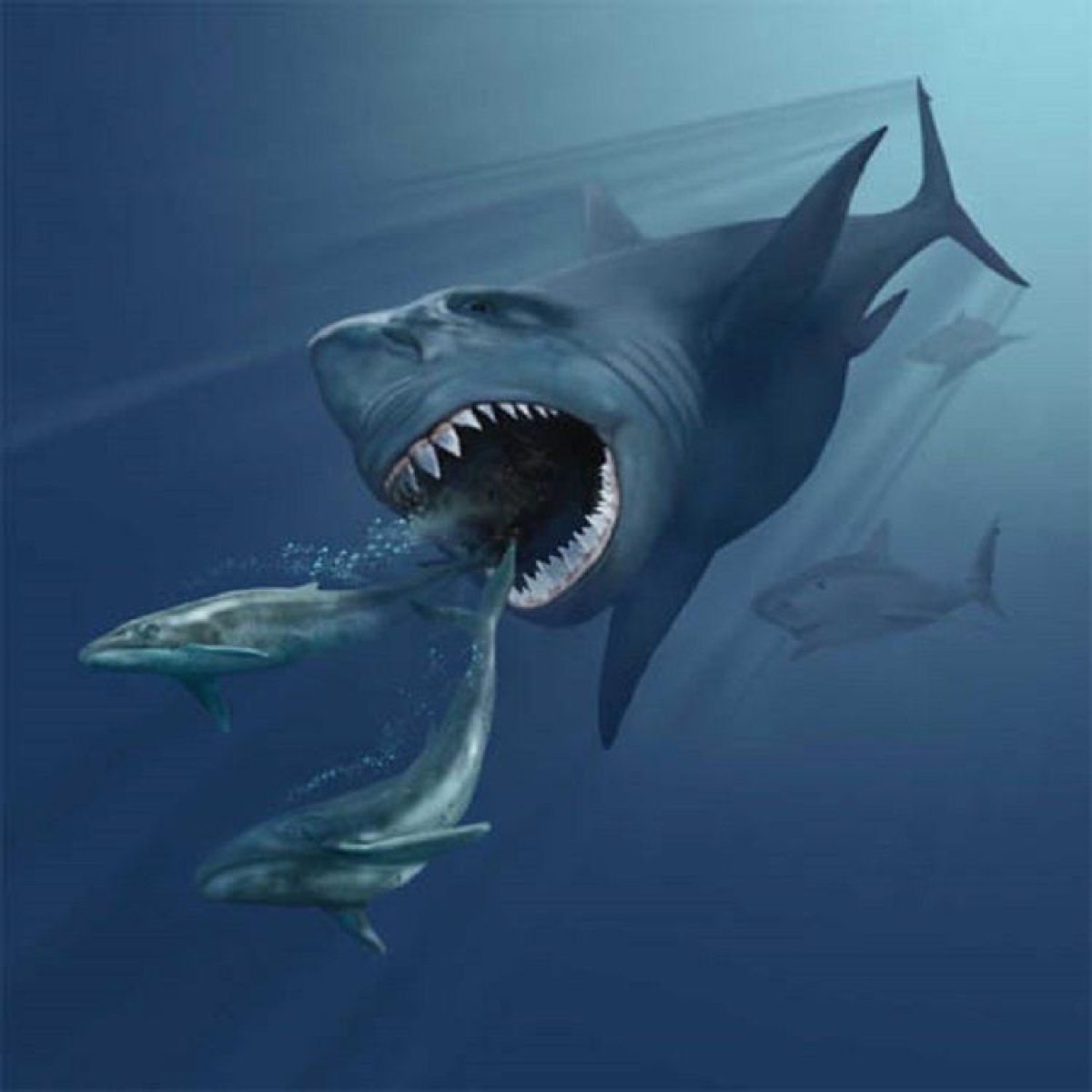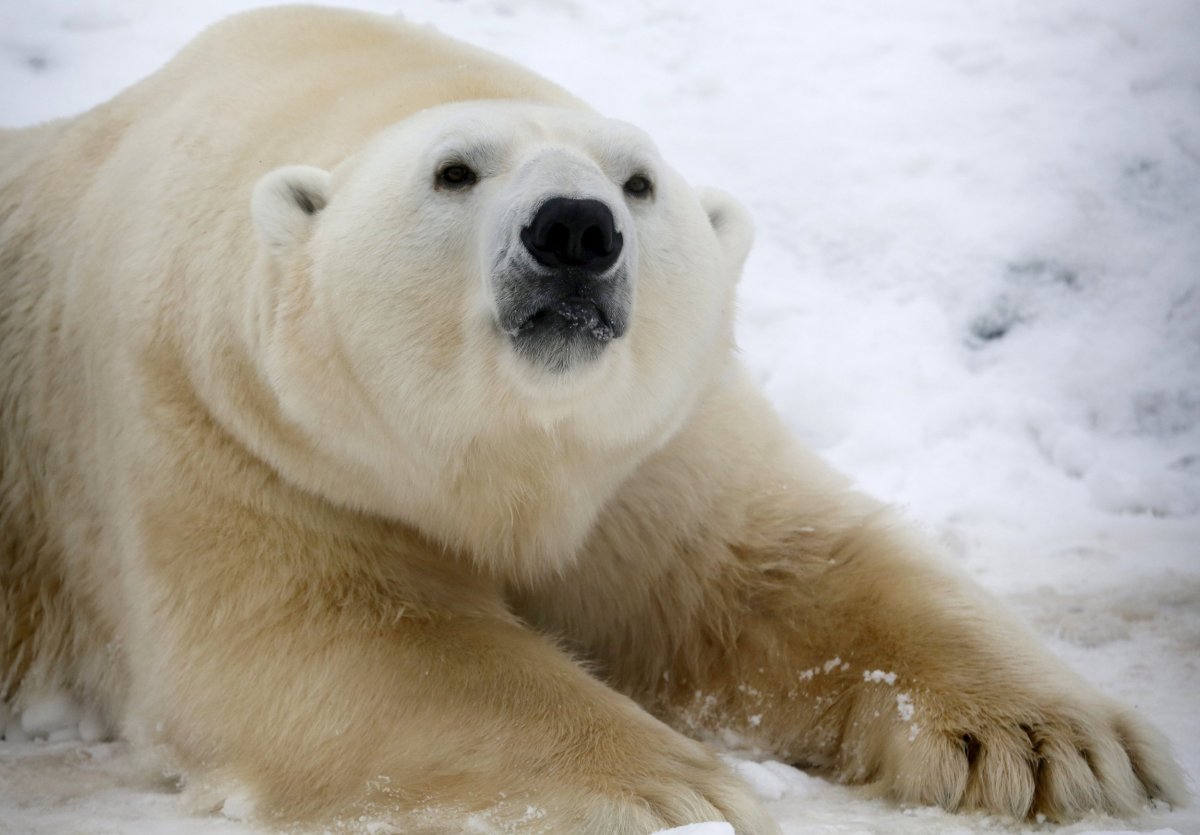Updated | The biggest shark to have ever lived was wiped out during a previously unknown global extinction event that saw 36 percent of the world's marine megafauna disappear.
Carcharocles megalodon could reach up to 60 feet in length and had jaws measuring 9 feet wide. It lived from 23 million years ago up until the end of the Pliocene Epoch, around 2.6 million years ago. What caused its extinction has been the matter of debate for many years—shifting environmental conditions, a decline in prey and the emergence of new marine predators all appear to have played a role.
However, in a study published in Nature Ecology & Evolution, scientists found the demise of the megalodon was part of a larger extinction event that affected huge swaths of marine life during the Pliocene (5.3 million to 2.6 million years ago).

The end of the Pliocene saw huge changes to the world's climate. Global temperatures and sea levels fell dramatically, leading to widespread changes to Earth's flora and fauna. In the ocean, many individual species were known to have gone extinct as others began to emerge. But to what extent this was happening was not known.
Scientists led by Catalina Pimiento from Switzerland's University of Zurich, carried out a meta-analysis in which they gathered all of the published fossil records from this period. "Individual extinct ions were widely known from the paleontological literature," she tells Newsweek. "We found they were part of a global extinction event."
The previously unknown extinction event included marine mammals, seabirds, turtles and sharks, with species being lost at a rate of around three times higher than during the Cenozoic Era—the geological period to which the Pliocene belongs. In total, 36 percent of all Pliocene marine megafauna went extinct.
The researchers also looked at the marine megafauna from the Pleistocene Epoch, which followed the Pliocene. By doing this, they were able to show which species were being lost and which were emerging at this time.
Marine mammals were found to have lost 55 percent of their diversity. Up to 43 percent of sea turtle species disappeared, while 35 percent of seabirds and 9 percent of sharks went extinct.

"This extinction took place in both coastal and oceanic species," Pimiento says. "We just focused on coastal species to assess the effects of the extinction on functional diversity, and to evaluate if the loss of coastal areas played a role."
Findings showed that seven functional entities—groups of animals with unique traits—went extinct from coastal ecosystems, which led to the decline of species throughout. "We found that changes in sea level caused by glaciations resulted in the loss of coastal areas and hypothesize that caused this extinction," Pimiento says.
In a statement, she says, "Our models have demonstrated that warm-blooded animals in particular were more likely to become extinct. For example, species of sea cows and baleen whales, as well as the giant shark C. megalodon, disappeared. This study shows that marine megafauna were far more vulnerable to global environmental changes in the recent geological past than had previously been assumed."
The team now plans to look at how their findings can help provide insight on the extinctions of modern megafauna, like whales and seals. "Our study cautions that as anthropogenic climate change accelerates and triggers regime shifts in coastal ecosystems, the potential consequences for marine megafauna should not be underestimated," the researchers concluded.
This story has been updated with the correction that this was a global extinction event, not a mass extinction event, as previously reported.
Uncommon Knowledge
Newsweek is committed to challenging conventional wisdom and finding connections in the search for common ground.
Newsweek is committed to challenging conventional wisdom and finding connections in the search for common ground.
About the writer
Hannah Osborne is Nesweek's Science Editor, based in London, UK. Hannah joined Newsweek in 2017 from IBTimes UK. She is ... Read more
To read how Newsweek uses AI as a newsroom tool, Click here.








